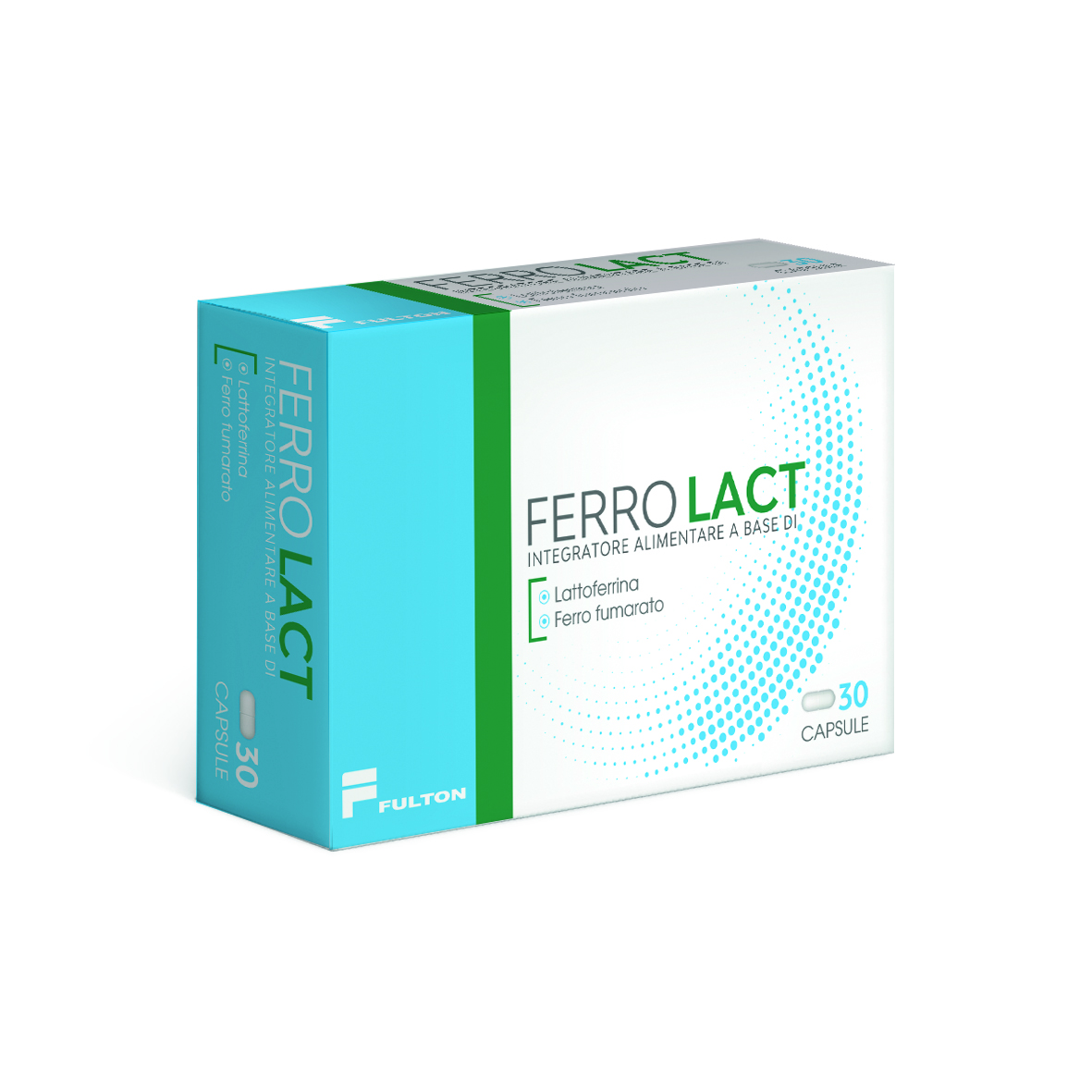PRODUCT CLASSIFICATION
Food Supplement
STATUS
Fulton Branded Products

Ferrolact
PHARMACEUTICAL FORM
Capsule
API/COMPOSITION
Fumarate IronLactoferrin
UNIT DOSAGE
100 mg 6,4 mg
PACKAGE
AREA
Hematology
INDICATIONS
Anaemia
MORE INFORMATION
Ferrolact is a food supplement based on lactoferrin and iron fumarate, useful in cases of deficiency or increased need for these nutrients.
Iron contributes to the normal synthesis of red blood cells as well as hemoglobin, also lowering the feeling of tiredness and fatigue. .
Lactoferrin plays a key role in the regulation of iron homeostasis. It binds iron, transports it into the intestine and binds to enterocytes, facilitating its internalization into cells and making it bioavailable. Thanks to this fine regulation mechanism of systemic iron homeostasis, lactoferrin contributes to restoring the physiological values of total serum iron, ferritin, hemoglobin, transferrin and red blood cells. Furthermore, lactoferrin acts as a chelating agent, preventing free iron in tissues and secretions from forming oxygen free radicals.
Lactoferrin is a natural immunity facto, having its own immunoregulatory and bacteriostatic properties.
Lactoferrin enhances the immune response both directly and indirectly.
Lactoferrin acts as a prebiotic on the intestinal flora.
Iron deficiency is often associated with anaemia, a condition in which the number of red blood cells is not sufficient to carry enough oxygen to meet the needs in the different tissues and organs of the body. There are different forms of this disorder, each caused by several factors. Its severity can also vary greatly from mild cases to very serious ones. anaemia is a global health problem. It affects 1.62 billion people, which corresponds to 24.8% of the population. Generally we talk about anaemia when the hemoglobin levels in the blood are lower than 13 g/dl in the case of men or 12 g/dl in the case of women. However, there are also other ways to define the disease, including hematocrit values lower than 40% in the case of men or 37% in the case of women. Reduced hemoglobin can be a temporary or chronic problem. Generally, more exposed people to the risk of anaemia are those who suffer from vitamin deficiencies (in particular vitamin B12, C or folic acid) or iron, intestinal disorders (including celiac disease), too abundant menstruation, chronic diseases such as liver or kidney failure and those who have family members who suffer from the same problem.
